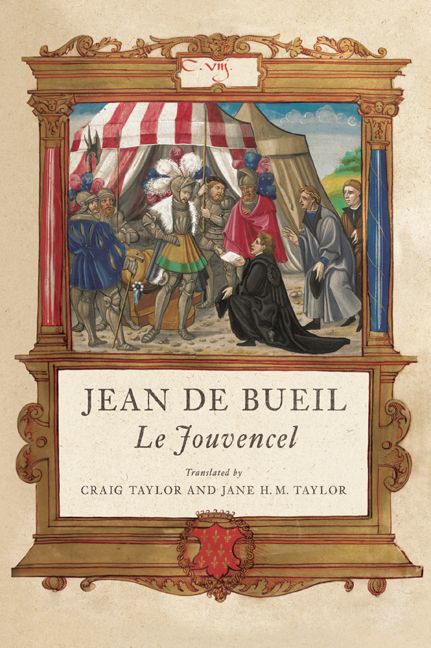Part III
Published online by Cambridge University Press: 06 October 2020
Summary
Prologue
Having fully completed the second part of the present book, which touches on Jouvencel’s governance in that middle estate known as economic, there remains the third and last part which will discuss Jouvencel's governance in that highest of all estates which Aristotle calls political, and which will deal with his rule in and organization of the kingdom of Amydoine. It should be no surprise that Jouvencel rose to that high and political estate, given his excellent career thus far and his abilities, as we have seen in the first two books that discussed his conduct in the two estates I have already discussed, the monostic and the economic. For as the philosopher says, a good beginning is half the battle.
In all affairs, the most important thing is to have a good beginning – and a fortiori, anyone having a good beginning and good attributes is naturally likely to attain to power and authority over others. As Aristotle also says, men of high and elevated understanding and virtue are by nature inclined and disposed to hold power and lordship over others. Jouvencel was virtuous and far-seeing: he has always conducted and governed himself virtuously in all his affairs, as we have already described.
Chapter 1
After the king of Amydoine had given his son Jouvencel the letter of authorization, for which he gave humble thanks, Jouvencel took his leave of the king, the queen, and his wife and returned to his own companions who were delighted to see him. [406] He showed them the letter of authorization that he’d brought, and described the welcome vouchsafed him by the king and the queen; he told them about his wife, and could not have been more enthusiastic about the whole situation. He discovered that three of Duke Baudouin's captains had arrived that very evening: Guillaume Bouqueton, a certain Herland, and Guillaume Bernard who had been taken prisoner at Crathor and who was a notorious braggart. Jouvencel welcomed them with open arms, given the pains they’d taken to join him. He also sent warm thanks to Duke Baudouin for the efforts he had made to send them; all Jouvencel himself had done was send a letter to the duke, and another to Guillaume Bouqueton.
- Type
- Chapter
- Information
- Jean de Bueil: Le Jouvencel , pp. 203 - 248Publisher: Boydell & BrewerPrint publication year: 2020

